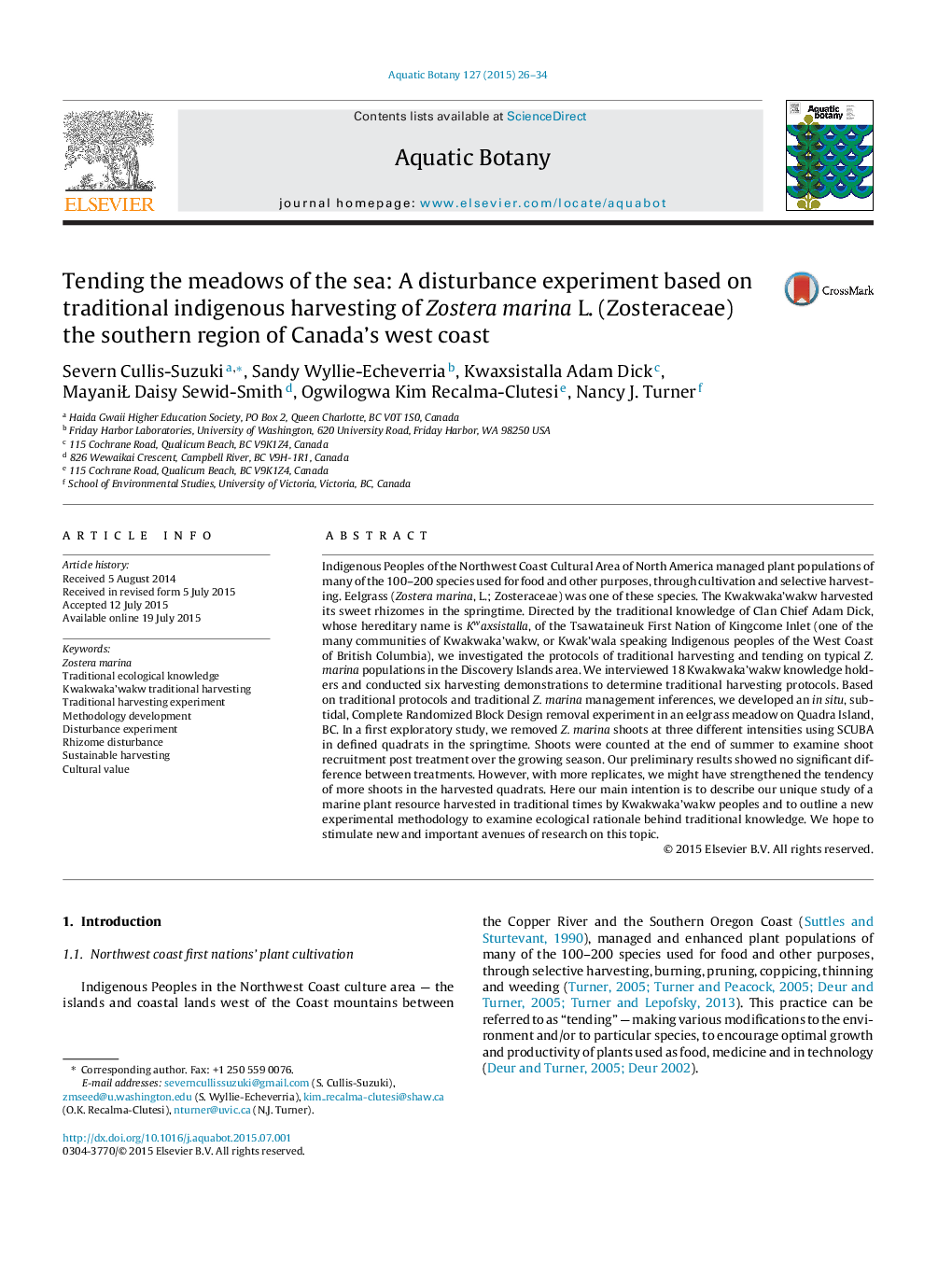| Article ID | Journal | Published Year | Pages | File Type |
|---|---|---|---|---|
| 6381708 | Aquatic Botany | 2015 | 9 Pages |
â¢Zostera marina was once a springtime food harvested by Kwakwaka'wakw peoples.â¢We derived traditional Z. marina harvesting protocols from interviews and field trials.â¢We developed an in situ disturbance experiment mimicking harvesting.â¢Our research suggests Z. marina was tended sustainably by Kwakwaka'wakw.
Indigenous Peoples of the Northwest Coast Cultural Area of North America managed plant populations of many of the 100-200 species used for food and other purposes, through cultivation and selective harvesting. Eelgrass (Zostera marina, L.; Zosteraceae) was one of these species. The Kwakwaka'wakw harvested its sweet rhizomes in the springtime. Directed by the traditional knowledge of Clan Chief Adam Dick, whose hereditary name is Kwaxsistalla, of the Tsawataineuk First Nation of Kingcome Inlet (one of the many communities of Kwakwaka'wakw, or Kwak'wala speaking Indigenous peoples of the West Coast of British Columbia), we investigated the protocols of traditional harvesting and tending on typical Z. marina populations in the Discovery Islands area. We interviewed 18 Kwakwaka'wakw knowledge holders and conducted six harvesting demonstrations to determine traditional harvesting protocols. Based on traditional protocols and traditional Z. marina management inferences, we developed an in situ, subtidal, Complete Randomized Block Design removal experiment in an eelgrass meadow on Quadra Island, BC. In a first exploratory study, we removed Z. marina shoots at three different intensities using SCUBA in defined quadrats in the springtime. Shoots were counted at the end of summer to examine shoot recruitment post treatment over the growing season. Our preliminary results showed no significant difference between treatments. However, with more replicates, we might have strengthened the tendency of more shoots in the harvested quadrats. Here our main intention is to describe our unique study of a marine plant resource harvested in traditional times by Kwakwaka'wakw peoples and to outline a new experimental methodology to examine ecological rationale behind traditional knowledge. We hope to stimulate new and important avenues of research on this topic.
